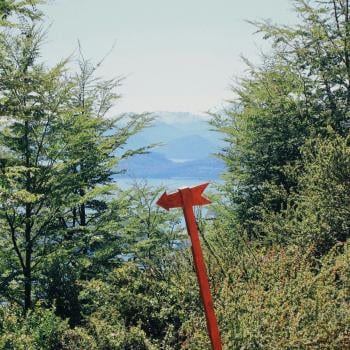Editors' Note: This article is part of a Public Square conversation on the Morality of Personal Drug Use. Read other perspectives here.
Here's the thing: not all drugs are created equal. The term is a clumsily broad one, including a broad spectrum of substances from marijuana to morphine, from aspirin to amphetamines. When we discuss decriminalizing pot, for example, this has vastly different implications (legal, personal, medical, cultural, and otherwise) than the decriminalization of, say, cocaine. In many states, marijuana possession has been decriminalized, and in some, medicinal use is now allowed; in Colorado and Washington, recreational use of pot is now legal.
In a nation where illegal drug abuse has ravaged communities (rural New England is seeing a frightening epidemic of heroin use, and crystal meth is the main industry in poor regions of Appalachia), it's easy to simply paint all recreational drug use with a broad brush, and to assume that an all or nothing approach to legalization is best. But some drugs of questionable legal status (like marijuana) have legitimate medical value. And many prescription drugs are being sold illegally for recreational use (Adderall, Oxycontin, and Ketamine being a small sampling). In addition, the habit-forming use of prescription narcotics for pain can cause life-threatening side effects over the long term.
I find it somewhat unusual to approach this topic from a spiritual context. But I feel strongly that the attitudes toward drug use within the pagan community are fraught with difficulty. First I want to discuss marijuana, which is widely accepted as a non-addicting substance that can be of enormous benefit for treating pain, anxiety, depression, nausea, and specific conditions such as glaucoma. I've known a great many pagans who use pot to self-medicate for a variety of conditions, and a good many (myself included) who utilize it as a tool for many purposes ranging from social lubricant, creative catalyst, and relaxant. I have also seen it used in a ritual context, as an aid to entering an altered state of consciousness (albeit one of only mild impact, as compared to the use of hallucinogens or psychotropics). It does not impair motor function or judgment to the degree alcohol does, nor does it have the same detrimental effects on health.
On the other hand, the liberal use of marijuana within a spiritual framework (before ritual, for example) may suggest that one need not be "serious" about one's spiritual endeavors in paganism, if they can be undertaken while enjoying a substance known for aiding relaxation, not to mention encouraging laughter or junk food cravings. To the contrary: the decision to enhance the ritual experience by way of a plant that many believe is a sacred substance (created by Mother Earth to help expand our minds and enhance sensory stimuli) is one that should not be taken lightly. Within circle, there should not be pressure for everyone to partake; nor should it be assumed that anyone who does choose to do so is having a "better" or "more intense" experience than someone who refuses. Ritual experiences are subjective, and ritual always has the potential to be transformative on many levels, regardless of the modes of preparation one has undergone: other behaviors can alter consciousness, too (fasting, drumming, dancing, etc. — the Eight Paths to Wisdom are well known).
My deeper concern is the lack of seriousness with which our community regards the thoughtless use of prescription drugs, and habit-forming OTC substances such as sleep aids, cold medications, or diet pills. Long-term reliance upon painkillers can be damaging to the body, and the specter of chronic pain makes it challenging to pursue other avenues (such as acupuncture, exercise, or dietary choices that might ease inflammation). Having chosen an "alternative" mode of spirituality such as Wicca, druidry, Asatru, goddess worship, or other mode of earth-centered spirituality, it seems to me we should also be more inclined to embrace alternative healing methods. Of course, one does see a great deal of interest in such practices within our wider community, but, just as there often seems to be a perplexing dearth of environmental awareness, there is also a confounding tendency for pagans to eschew alternative healing modalities when popping a pill is so much easier.
I'd like to see the same level of energy and passion many are directing toward the (entirely appropriate) legalization of medicinal and recreational use of marijuana, directed toward the study and practice of ancient and integrative healing arts such as aromatherapy, Ayurveda, yoga, body work, and the good old tried and true paths of diet and exercise. We worship gods and goddesses of the elements, the celestial bodies, the living flora and fauna...why not make a better effort to avail ourselves of the healing powers of Nature's gifts?
2/26/2014 5:00:00 AM




